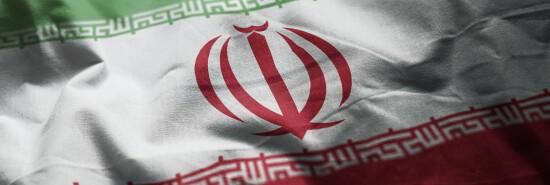
The Iranian influence campaign went further than many realize
The evidence that Iranian officials ran an influence operation that penetrated the State and Defense departments is damning. Not only did Iranian American academics and think tankers meet with Iranian officials, but leaked emails suggest they also took direction from them. Not only financial gain motivates espionage; ideological solidarity motivated some of the most damaging spies in American history.
While the Biden administration seeks to downplay the scandal, more than 30 senators now demand the Pentagon suspend and review the security clearance of Ariane Tabatabai, one of the members of the so-called Iran Experts Initiative, now in a sensitive Pentagon position.
Some journalists and pundits defend the Iran Experts Initiative members and instead impugn the motivations of those raising questions. This is rich given the ease with which the same journalists, without any truth, impugned the motives of Jewish Americans serving during the Iraq War. It also ignores the fact that most Iranian Americans do not blame those asking the questions, but rather are angry with the initiative members whose compromised ethics and displaced loyalty might now cause a cloud to descend over one of the most successful American communities.
While the Iran Experts Initiative might be one aspect of the Islamic Republic’s influence operation, Congress should not assume that Iran has only one. For decades, the Iranian regime traded access for self-censorship. Only those willing to parrot Iranian talking points could expect visas, or meet with top officials, unique access that visitors could then use to heighten their platforms in Washington. While pundits see those who pal around with Russian Foreign Minister Sergey Lavrov or dine with President Vladimir Putin as demonstrating poor judgment if not being compromised by Russia, somehow elite opinion treats former Iranian Foreign Minister Mohammad Javad Zarif or late President Ali Akbar Hashemi Rafsanjani differently.
Prior to forming the Iran Experts Initiative, the Iranian government promoted similar operations marrying access and influence, albeit under different names. A 2009 Iranian press account of a reception at the Iranian Interests Section in Washington, D.C., recounted Seyyed Hossein Nasr (father of former Johns Hopkins SAIS Dean Vali Nasr) bragging about using his influence to promote Shiite scholars at the expense of Jews and Baha’is and asking Iran for financial assistance to continue his efforts.
National Iranian American Council influence peaked before limelight, and the exposure of its own emails through a lawsuit discovery process raised too many questions. Prior to the NIAC, there was the American Iranian Council with which Secretary of State Madeleine Albright engaged. While Rutgers University professor Hooshang Amirahmadi may have told American diplomats the right things in English, in Persian, he was more strident: “Iran has not been involved with any terrorist organization. Neither Hezbollah, nor Hamas are terrorist organizations,” he told the Iranian press.
The apparent Iranian influence campaign also extends to Voice of America. Problems with the American broadcaster’s Persian service are nothing new. The resignation of VOA acting Director Yolanda Lopez at the end of last month after a hapless tenure may ironically make things worse.
VOA’s new acting director is John Lippman, who came to notoriety due to the matter of Setareh Sieg, the former Persian Service chief, whom he backed in word and deed. Whistleblowers said that under Sieg’s tenure, VOA was nicknamed “Voice of Tehran” due to its skewed, pro-Iran coverage. Sieg and Lippman have also been in congressional crosshairs due to allegations she embellished her academic credentials and mismanaged her program’s finances. VOA’s governing body exonerated Sieg, and Biden’s team reinstated and promoted her. But Congress now investigates improprieties both with the internal investigation and the decision to reinstate her.
The question for investigators now is whether Sieg’s alleged pro-Iran tilt was spontaneous or part of a broader effort by Iran to skew analysis in Washington. Given all the data points, it is clear that the Tabatabai case may only be the tip of the iceberg in an Iranian influence campaign that transcends departments, agencies, and decades.
Source » msn





